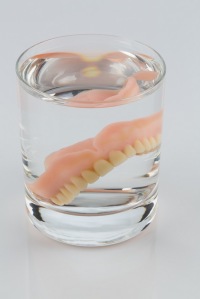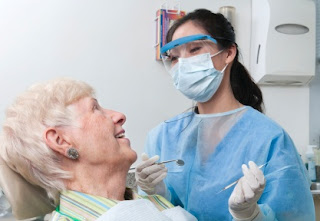Welcome to the second installment of this four-part FAQ guide to teeth replacement using dental implants! Previously, in Part 1, an experienced cosmetic dentist in Pueblo CO provided the insightful answers to our initial questions, which included an explanation of what dental implants are and how the cost of implant surgery is determined.
Now, let’s move on to some questions on how dental implants compare with traditional teeth replacement technology…
Question: Oftentimes, it’s the cost of a service that determines whether or not consumers choose it. Do you find patients opting for cheaper technologies over dental implants even though it is clear that implants are superior?

Answer: “To correct you, it’s actually not clear to most of our patients that implants are superior,” explains the cosmetic dentist. “The Pueblo residents we treat come to us knowing very little about why they are experiencing tooth loss in the first place and what treatment options they have to correct it. And so we explain to them that they could have a denture fitted or they could have dental implants done. Unfortunately, patients tend to tune out the very long list of implant benefits we provide and focus only on the cost difference. Naturally a few hundred dollars sounds far better than a few thousand.
“What’s especially sad is that these same patients will come back in our office every year complaining about the increasing pain, discomfort and difficulty caused by wearing dentures and there’s really very little we can do about it if they’re unwilling to foot the bill for a more sophisticated dental solution. These concerns didn’t matter at the beginning of treatment, because these patients were just so relieved to have a set of teeth that looked healthy. Now, however, they are faced with the reality of denture-wearing… and it’s not pretty.”
Question: Why are dentures so problematic?

Answer: “Two reasons: they don’t replace the roots of the teeth and as a result, the underlying jawbone actually begins to atrophy and waste away, because it’s not getting any functional stimulation. This causes the bite to weaken and the maxillofacial region to develop that sunk-in appearance typically associated with denture wearing.
“The next reason is that dentures rely on their bulkiness and the underlying gums to remain stabilized in the mouth. Their bulk causes unnatural smile aesthetics by stretching the lips and they’re very uncomfortable to eat with – some patients complain that their dentures make them gag. Additionally, the fact that dentures push down on and rub against the gums causes incessant pain and discomfort, so much so, that it can lead to malnutrition,” says the Pueblo dentist.
Question: So, dental implants are the industry recommendation for a very good reason?
Answer: “Absolutely! Wearing dentures can totally wreck your quality of life, as well as shorten your life expectancy by 10 years due to lack of proper nutrition and depression.”
Stay Tuned for Part 3
Stay tuned for the third installment of this four-part article series to read the answers to more of your frequently asked questions about dental implants.











 With one surgical appointment, Colorado Springs residents can get a beautiful set of new, non-removable teeth that can last them a lifetime without any additional expense other than the routine professional maintenance needed by anyone. If you look after your new teeth, you’ll never need to spend another cent on replacing teeth – forget costly refittings.
With one surgical appointment, Colorado Springs residents can get a beautiful set of new, non-removable teeth that can last them a lifetime without any additional expense other than the routine professional maintenance needed by anyone. If you look after your new teeth, you’ll never need to spend another cent on replacing teeth – forget costly refittings.



















